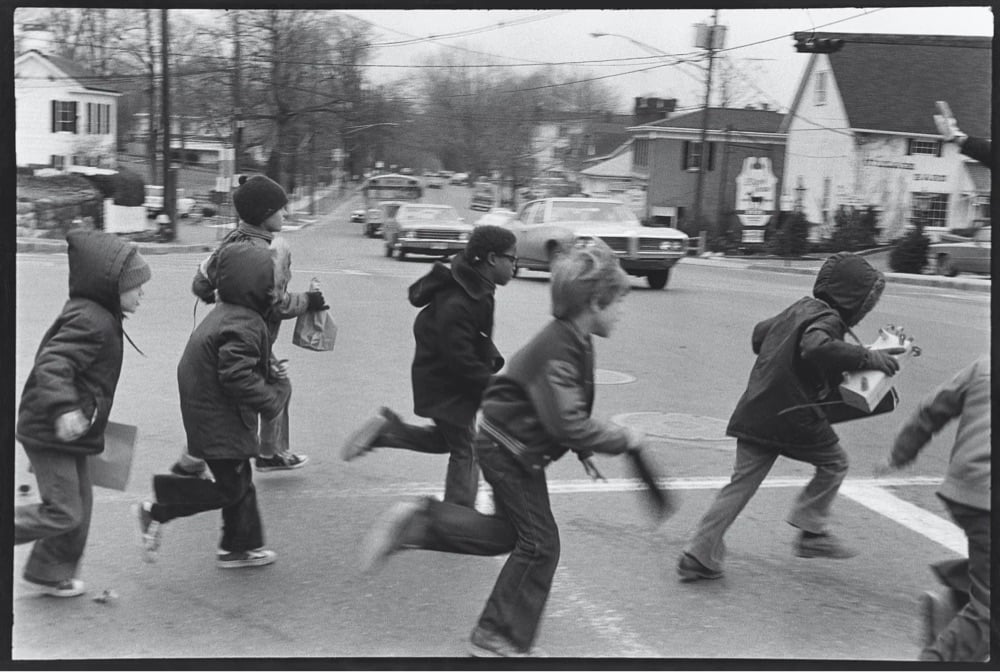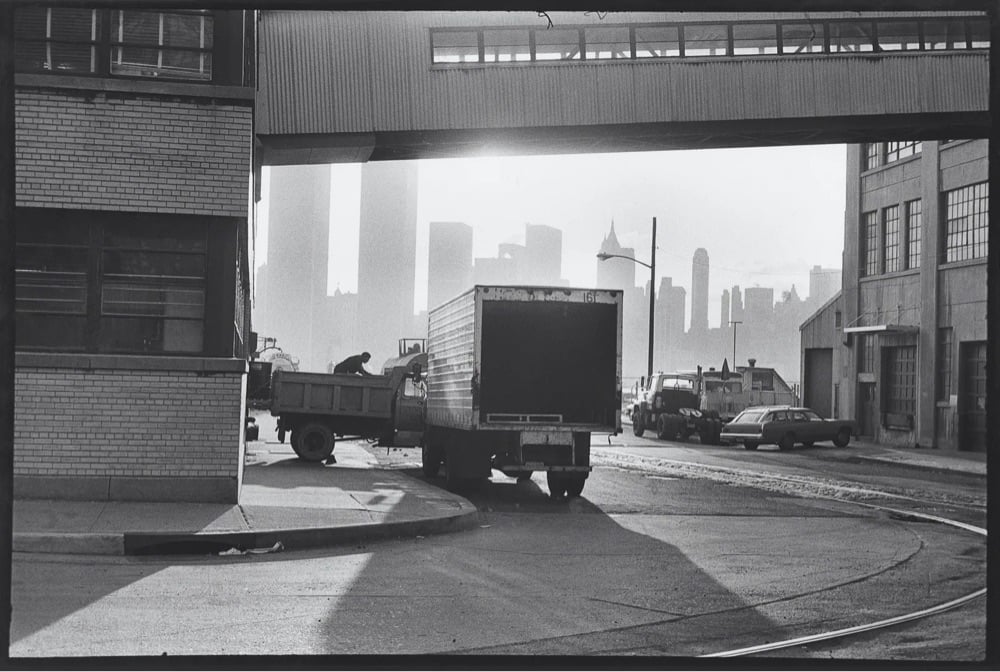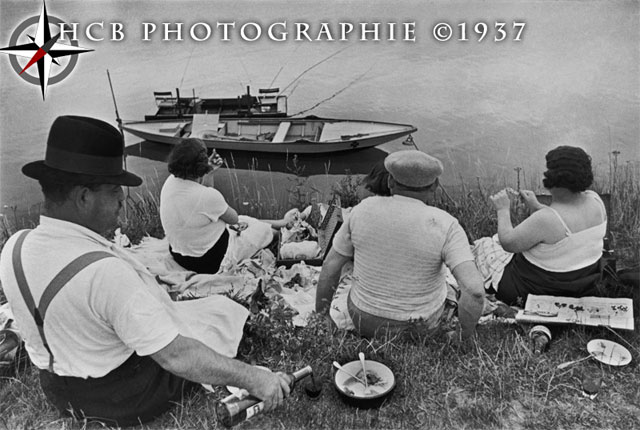

In 1975, famed French photographer Henri Cartier-Bresson traveled, at the behest of a public television station, to the US to take photographs of New Jersey.
The photographer felt that New Jersey’s anywhere-ness, its density and diversity, was “a kind of shortcut through America.” With that prompt, Evans assembled an itinerary. Cunningham picked up Cartier-Bresson in Manhattan around sunrise each day for three weeks and headed for the bridges and tunnels. They embedded with ambulance drivers in Newark and chicken farmers in West Orange. They visited suburban sprawl, horse country, pine barrens, swamps, seashore, beauty parlors, labs, nuclear facilities, jails, mansions. They once stayed overnight in a South Jersey motel, and Cartier-Bresson insisted that they flip a coin to determine who got the bed.
It was one of his final photo projects and because his photos were cropped for use on television (“a practice Cartier-Bresson viewed as sacrilege”), the project was not included in most catalogues of his work and was almost forgotten.
You can watch the resulting TV program from 1975 at the American Archive of Public Broadcasting.
What if Andreas Gursky, Garry Winogrand, and Henri Cartier-Bresson put cheesy watermarks all over their photographs?

(via @jenbee)
A few things you might learn about photography by following Henri Cartier-Bresson’s example.
4. Stick to one lens
Although Henri Cartier-Bresson shot with several different lenses while on-assignment working for Magnum, he would only shoot with a 50mm if he was shooting for himself. By being faithful to that lens for decades, the camera truly became “an extension of his eye”.
Update: That link is having some trouble so here’s the cached copy from Google.
Someone at Yahoo Answers posted the first page of Infinite Jest with the title “First page of my book. what do you think?” The crowd was not impressed:
No discernible voice/tone in this writing. Rambling descriptions. I, frankly, do not care where each and every person is seated. I don’t care what shoe you’re wearing. If you take out all the unnecessary details, you’d be left with about seven words.
See also what happens when a photo by Henri Cartier-Bresson gets critiqued on Flickr.
so small
so blurry
to better show a sense of movement SOMETHING has to be in sharp focus
(thx, timothy)
I got a look at the Henri Cartier-Bresson exhibit at MoMA the other day and loved it. Seeing his work, especially his earlier on-the-street stuff, makes me want to drop everything and go be a photographer. If you’re into photography at all, this show is pretty much a must-see.
(BTW, I chuckled when I saw this photo on the wall…it was the subject of an epic Flickr prank a few years back.)








Stay Connected